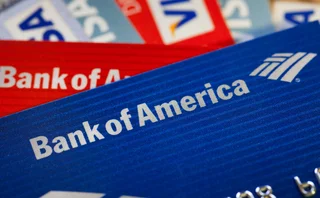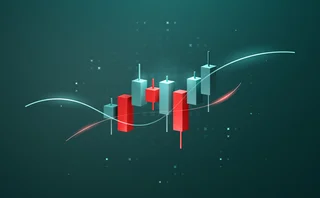FX Lags in TCA Adoption
A London-based head of FX trading says that TCA could be beneficial in very liquid, range-bound markets, when margins are very tight. However, amid highly volatile market conditions, access to liquidity becomes a higher priority. Although his bank did not have specific TCA-type metrics to monitor traders, it had embedded these types of metrics in its high-frequency algorithmic business where margins were very tight, he adds.
According to research recently released by industry research firm Tabb Group more than a third of buy-side FX traders believe that TCA can improve the way FX trades are scheduled and routed. A survey of 137 equity trading companies, which included FX traders, found that 58 percent of buy-side FX traders attempt to measure execution quality and transaction costs.
TCA is also used by nearly 75 percent of the equity trading firms surveyed to evaluate their traders against TCA, with 25 percent of equity trading firms believing TCA should be used as part of compensation for traders.
Although Société Générale Corporate and Investment Banking (CIB) does not perform any TCA-type analysis on its voice trading business, flow data was monitored through the e-platforms it participated on, explains Lars Hakanson, global head of flow FX at Société Générale CIB in London. TCA has more value from a data collection point of view, rather than to draw conclusions on trader performance, he adds.
However, TCA could be part of the evaluation process, but opinion varies on what the sign of good execution is, depending on the size of flows the bank deals with, liquidity, and where a bank wants to capture savings, according to Hakanson.
Tabb Group found that TCA is most commonly used in equity trading, where its use among U.S. and European firms is estimated to reach 90 percent by 2009.
However, 37 percent of the 137 traders surveyed by Tabb Group believe that daily TCA could improve execution. Another 27 percent say if such data was offered they would look at it "never or infrequently." The remaining percentage was split equally between those who would examine execution quality either weekly or monthly.
The study says TCA added value by determining the cause of implicit transaction costs and help lower these costs by helping traders choose how they execute orders. However, the benefits of TCA were still contested. Nearly a quarter of those interviewed see volatility as the main driver of unavoidable transaction cost, while others cite order size and a stock's liquidity, according to the study's authors.
Moana Burt
Only users who have a paid subscription or are part of a corporate subscription are able to print or copy content.
To access these options, along with all other subscription benefits, please contact info@waterstechnology.com or view our subscription options here: http://subscriptions.waterstechnology.com/subscribe
You are currently unable to print this content. Please contact info@waterstechnology.com to find out more.
You are currently unable to copy this content. Please contact info@waterstechnology.com to find out more.
Copyright Infopro Digital Limited. All rights reserved.
As outlined in our terms and conditions, https://www.infopro-digital.com/terms-and-conditions/subscriptions/ (point 2.4), printing is limited to a single copy.
If you would like to purchase additional rights please email info@waterstechnology.com
Copyright Infopro Digital Limited. All rights reserved.
You may share this content using our article tools. As outlined in our terms and conditions, https://www.infopro-digital.com/terms-and-conditions/subscriptions/ (clause 2.4), an Authorised User may only make one copy of the materials for their own personal use. You must also comply with the restrictions in clause 2.5.
If you would like to purchase additional rights please email info@waterstechnology.com
More on Trading Tech
After acquisitions, Exegy looks to consolidated offering for further gains
With Vela Trading Systems and Enyx now settled under one roof, the vendor’s strategy is to be a provider across the full trade lifecycle and flex its muscles in the world of FPGAs.
Enough with the ‘Bloomberg Killers’ already
Waters Wrap: Anthony interviews LSEG’s Dean Berry about the Workspace platform, and provides his own thoughts on how that platform and the Terminal have been portrayed over the last few months.
BofA deploys equities tech stack for e-FX
The bank is trying to get ahead of the pack with its new algo and e-FX offerings.
Pre- and post-trade TCA—why does it matter?
How CP+ powers TCA to deliver real-time insights and improve trade performance in complex markets.
Driving effective transaction cost analysis
How institutional investors can optimize their execution strategies through TCA, and the key role accurate benchmarks play in driving more effective TCA.
As NYSE moves toward overnight trading, can one ATS keep its lead?
An innovative approach to market data has helped Blue Ocean ATS become a back-end success story. But now it must contend with industry giants angling to take a piece of its pie.
BlackRock, BNY see T+1 success in industry collaboration, old frameworks
Industry testing and lessons from the last settlement change from T+3 to T+2 were some of the components that made the May transition run smoothly.
Banks seemingly build more than buy, but why?
Waters Wrap: A new report states that banks are increasingly enticed by the idea of building systems in-house, versus being locked into a long-term vendor contract. Anthony explores the reason for this shift.







